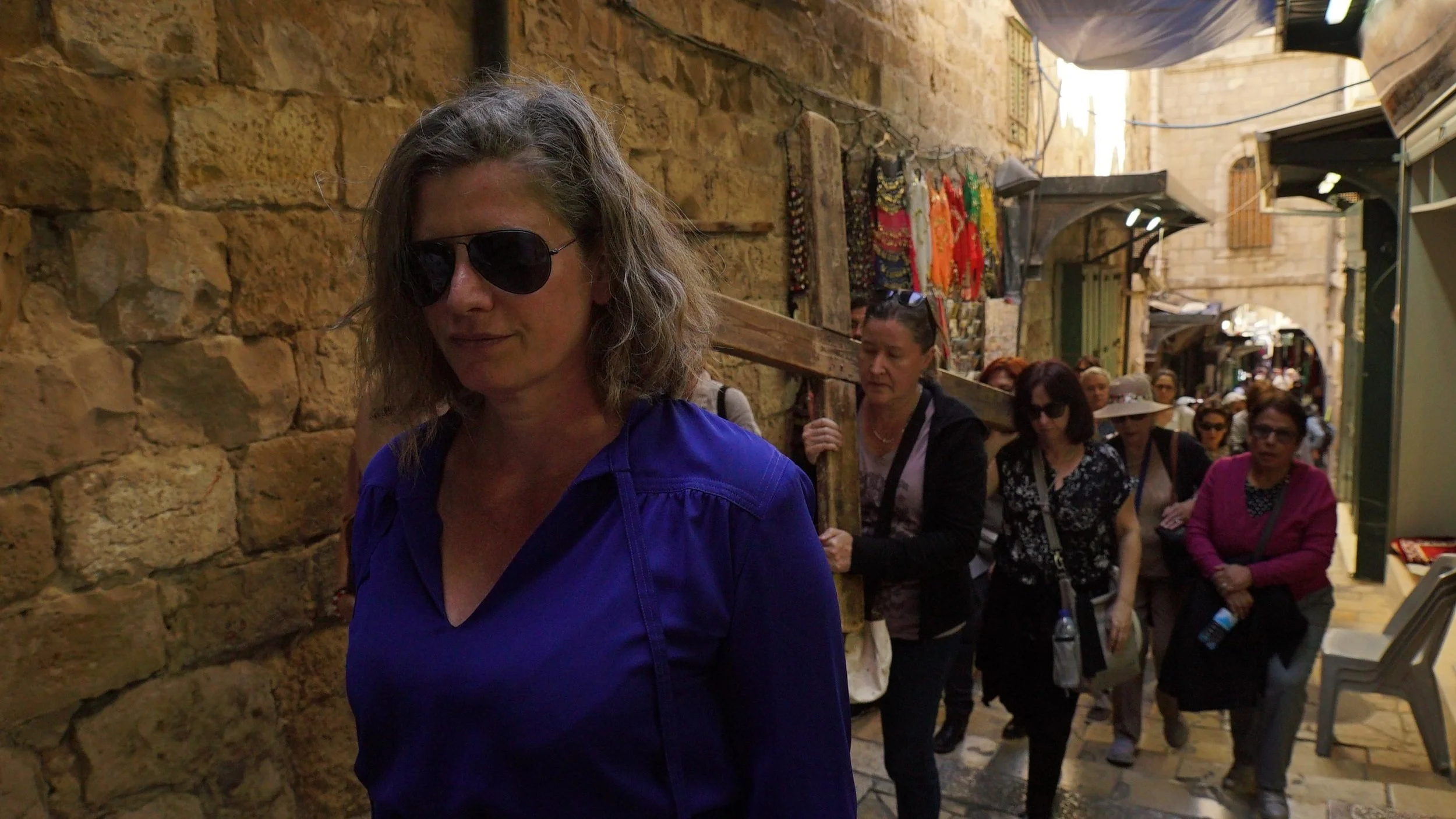The Tinderbox
Gillian Mosely’s deeply felt study of the long-lasting conflict between Israelis and Palestinians believes that it is time to call it a day.
For twenty years, Gillian Mosely has worked as a producer, mainly but not exclusively for television. Now for the first time she turns director, always a significant step to take. But The Tinderbox represents much more than that for her since this is a piece that she also wrote herself and in it she pours out her heart. Mosely is the narrator here and, in addressing the conflict which has for so long afflicted Israelis and Palestinians, she is at pains to explain exactly where she is coming from. She is a secular diaspora Jew who is part British and part American and one who has lived in both countries. Her upbringing was such that in her early years her sympathies were all with her own people, but she would subsequently become an adult possessed of enormous compassion for those on both sides of this divide. A major influence on her viewpoint was her friendship with a gay Pakistani Muslim and this film is dedicated to his memory.
The Tinderbox sees Mosely visiting Israel for the first time in ten years and her film tellingly combines three strands. One of these features a deal of archive material and looks back on the relevant history. While much of the footage is comparatively recent, this aspect places special stress on events during the time of the First World War. Details from much earlier in history are referenced too, but Britain is called to account for the way in which in 1915 it supported Pan-Arab independence only to favour a Jewish homeland in Palestine just two years later as set out in the Balfour Declaration. These manoeuvres by Britain to win wartime support thus resulted in conflicting promises which fuelled tensions between Jews and Palestinians and which show no signs of abating.
The second strand features interview footage with five contemporary figures who are varied in age, nationality and outlook. Getting to know them adds weight to Mosely's assertion that everybody, whatever their attitude, believes that they are right. The third element comes in with shorter sequences of unnamed people expressing their views, each of these being presented as a montage of opinions held by ordinary folk. It could be that viewers who count themselves as already highly knowledgeable in this field will take issue with what they regard as omissions or even misrepresentations, but Mosely’s heartfelt plea on behalf of all those caught up in the situation regardless of nationality comes across in a way that to me feels fair and balanced and is historically informative.
The Tinderbox is a well-made film, albeit one in which the images are there to support the words heard. It is Mosely's essay-like narration and the observations of the individuals seen on screen that are of the essence even if the accompanying pictures make their own contribution. I do, however, question the decision to use extracts from classical music instead of an original music score - and all the more so because the inclusion of familiar favourites distracts the ear. But such details do not weigh heavily in this context. Mosely is to be congratulated on going all out to convey her deepest concerns by giving us a film that refuses to take sides and cries out in the cause of common humanity.
MANSEL STIMPSON
Featuring Kobi Farhi, Israel Medad, Issa Amro, Muna Tannous, Abed, Dani Jacobs, Gillian Mosely.
Dir Gillian Mosely, Pro Gillian Mosely, Screenplay Gillian Mosely, Ph Richard Blanshard, Ed Andy R. Warboys.
Medialab/Spring Films-Dartmouth Films.
91 mins. UK. 2020. UK Rel: 25 March 2022. Cert. 12A.


